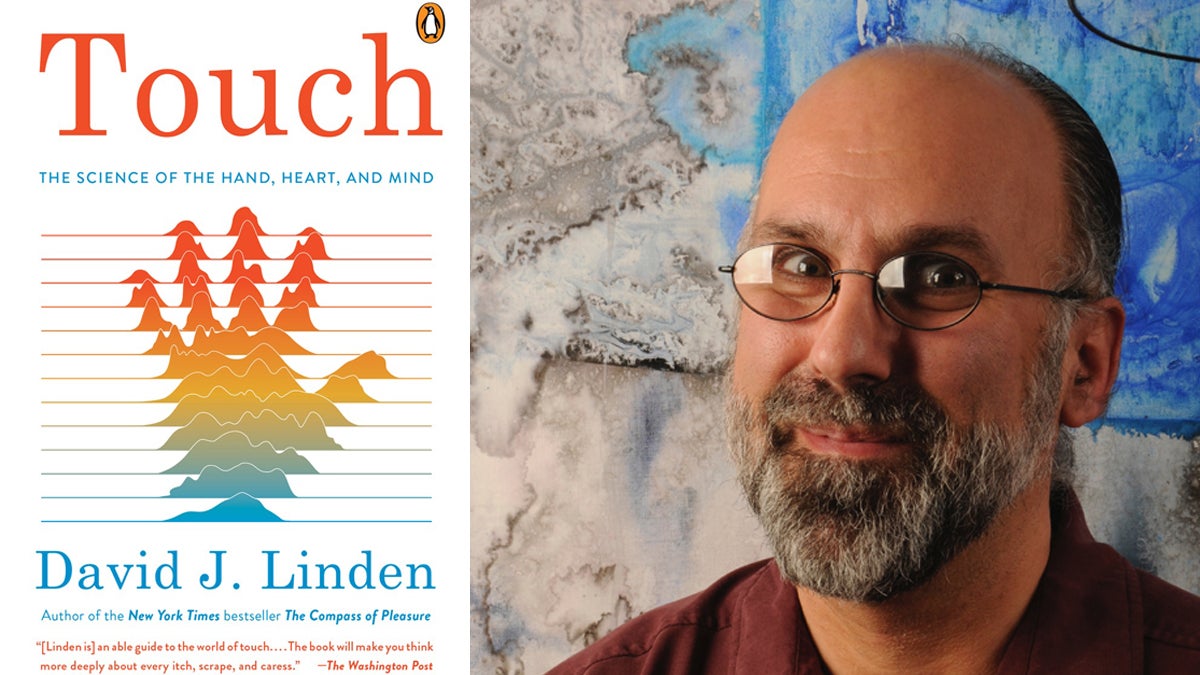Author says touch is about hand, heart and mind
Listen
Touch author David Linden. (Courtesy of David Linden)
Why does it feel good when your sweetheart’s hand brushes your arm?
“If you were to follow the touch sensation into the brain, you would find that there are two basic processing stations,” explains neurobiologist David Linden, author of “Touch: The Science of Hand, Heart, and Mind.”
“One of them is just there for the facts, like where on my body am I being touched, and then the other part is a more emotional and contextual center where expectation and personal history come into play.”
That second center would process a caress as a pleasant sensation, provided that it comes during a moment of connection.
“If you get that very same caress on your arm, with the same location and pressure and what have you, in the middle of an argument with your sweetheart, it won’t feel the same way at all,” Linden says.
Touch is an important tool for the formation of social bonds.
“It’s what binds sexual partners into lasting couples,” Linden says. “It’s what brings families together. It’s what makes teams in the workplace and literally, sports teams.”
A study done by Dacher Keltner’s group at UC Berkeley looked at the impact of social touch on the performance of NBA teams.
“They scored all the high fives and chest bumps and pats on the rear end,” explained Linden. “The teams that had more celebratory touch both won more games in the second half of the season and played in a less individualistic fashion, more like a cooperative group.”
But social touch does more than bring people together. It is a crucial ingredient for normal childhood development.
“If you don’t receive loving touch when you are a newborn or toddler,” says Linden, “then it’s an utter disaster.”
“We know this recently from orphans,” Linden says. “In grossly understaffed locations in romania in the 1980s and 1990s, there was nobody to care for these kids and they were just lying there untouched, and what we know is that these children develop cognitive impairment, they’re depressed, they have problems forming bonds with people.”
The developmental issues associated with lack of touch in early life extend beyond the emotional and psychological.
“Their immune systems don’t develop properly, their digestive system doesn’t develop properly, they’re stunted in growth.”
But how are they all connected?
“In truth we don’t know the mechanism,” Linden says. “That’s still a mystery.”
Listen to the full interview above.
WHYY is your source for fact-based, in-depth journalism and information. As a nonprofit organization, we rely on financial support from readers like you. Please give today.



